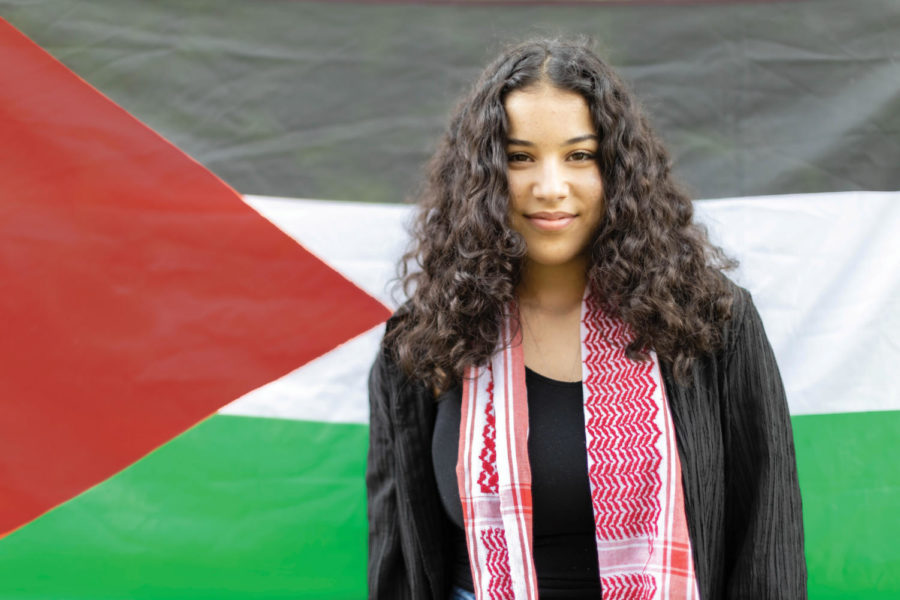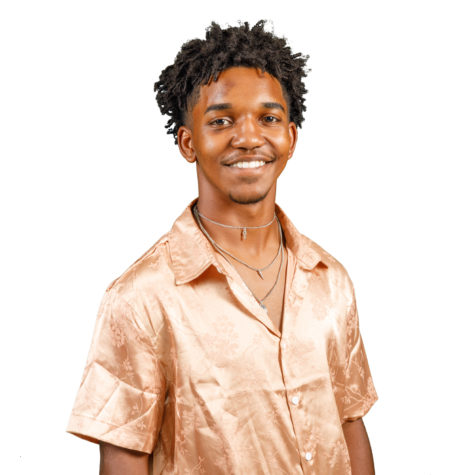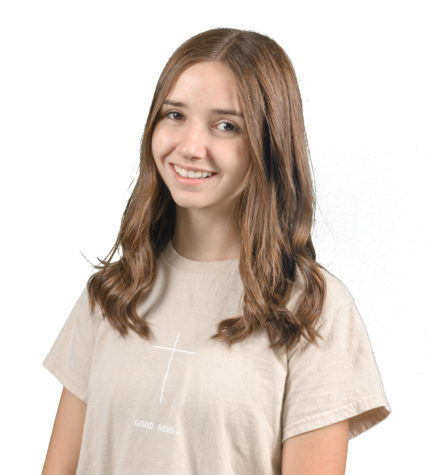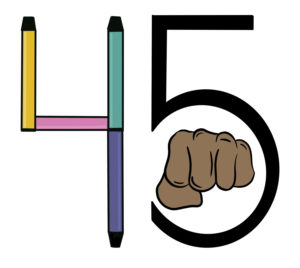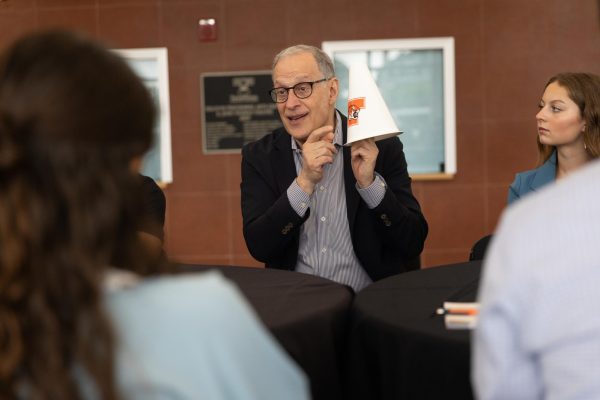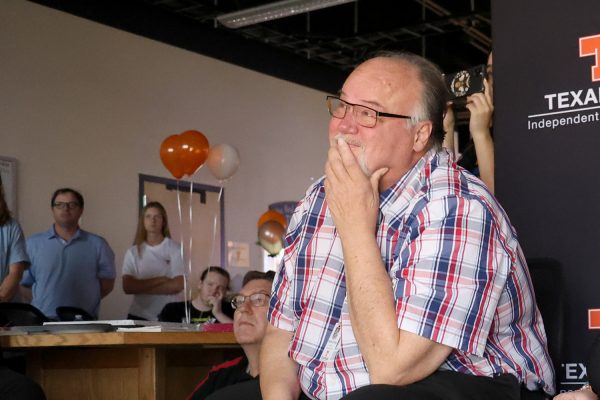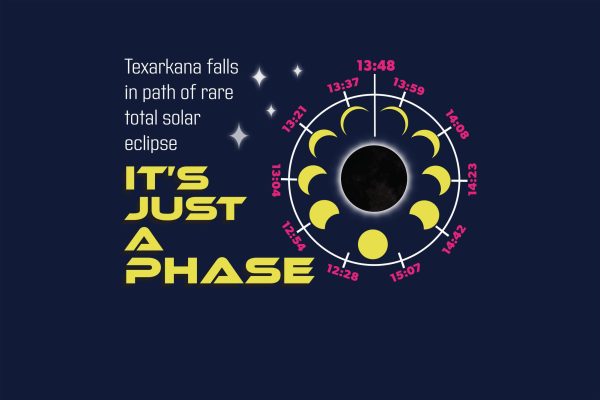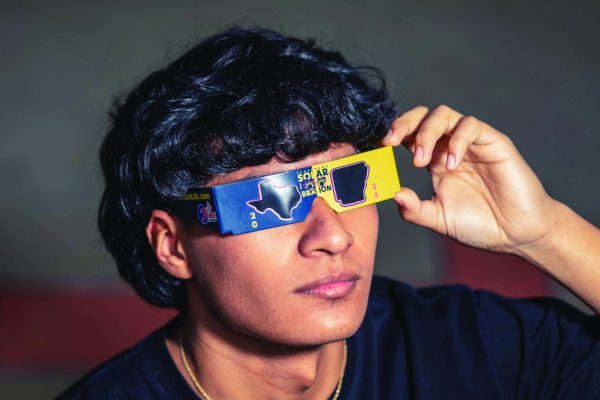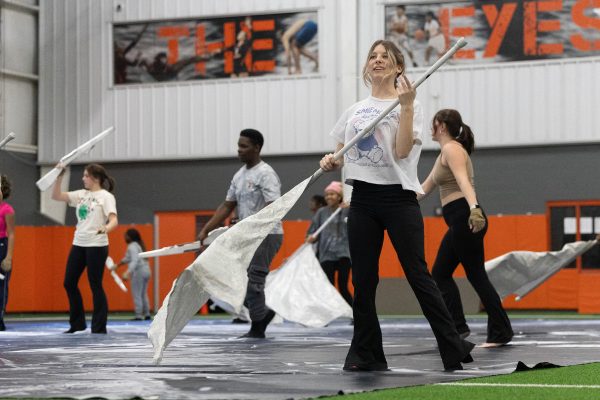Protect Palestine
Jordanian speaks her mind on the unfair treatment Palestine and other Middle Eastern countries experience
Yosra Nseirat stands in front of the Palestine flag proud to be Middle Eastern.
September 26, 2022
For what seemed like a mile, only four colors could be seen: red, white, black and green. Behind this sea of color lies not only individuals packed shoulder to shoulder, but the core message of a movement. All of these people gathered to support family, friends and those oppressed by the Israeli government in Palestine.
In the center of this energetic crowd, a passionate woman’s voice could be heard bellowing through a microphone: “Shouldn’t the videos of wounded crying babies be enough?”. Senior Yosra Nseirat stands among those in the crowd, pondering the crises that has led her to be at this protest.
“I have family from Palestine and there, with the conflict going on, it’s really sad to see how people are treated,” Nseirat said. “People perceive Arabs as bad people and others like Zionists in America as good people, but really, they’re not.”
Historically the Zionist movement is a nationalist movement that supports a homeland for the Jewish people centered in the area of Palestine. Due to this sentiment, in early 2022 Israeli forces made some outwardly aggressive attacks against Palestinians.
“Honestly, when different subjects like this come up in the world people shed a lot of light on it, but when it’s regarding the Middle East, it’s never looked on in an equal fashion,” Nseirat said. “The media kind of turns a blind eye to it.”
Unfortunately, we can draw parallels between this situation and the more recent coverage of Ukraine v. Russia. Both of these stories have already made their run through the mainstream media. Therefore, we have the gift of hindsight to truly analyze the dynamic.
“[The Media] will give so much attention to [Ukraine] and will help. When it comes to Palestine v. Israel, they just don’t care,” Nseirat said. “I mean, it’s honestly because America supports Israel, and so they won’t really do anything about it.”
One of the key differences between media coverage between the two is the way it characterizes its aggressor. When Ukrainian citizens form a militia and arm themselves with homemade weapons, they are seen as heros picking up the cause- as characterized by AP News. In contrast, when Palestinians participate in similar behavior, they are labeled targets and equal aggressors- as seen in a different AP News article published just eight days later.
It’s really sad to see kids have to grow up so fast at a young age and understand ‘I’m in danger and I need to protect myself.
— Yosra Nseirat
“A lot of people in Palestine are starving, and I feel like we can do more to help and support them,” Nseirat said. “Palestine doesn’t really have the weapons to protect themselves, and then America really just funds Israel and Ukraine to have all those weapons.”
Since January 2021, the United States has committed more than $13.5 billion in security assistance to Ukraine, according to the US Department of Defense. As well as $3 billion in annual grants to Israel since 1985- totaling over $146 billion over the years- observed by the Congressional Research Service.
“Arabs are not bad people,” Nsierat said. “I feel like people just don’t know about [Arabs], and sometimes they’re like, ‘What is that?’ They don’t know what Palestine is or anything. They’re not educated on it.”
Along with the difference in media portrayal, comes the potential for misrepresentation of culture. This a phenomenon that has been reported to happen quite often to Arabics in western media spheres.
“We’re very humble, and we are open with our hospitality. We’re very giving people, and if you meet any Arab and you’re in need of help, they’ll bring you into their homes,” Nseirat said. “Middle Easterners are really passionate about their culture. I mean, I grew up around Arabs and just fell in love with my culture.”


